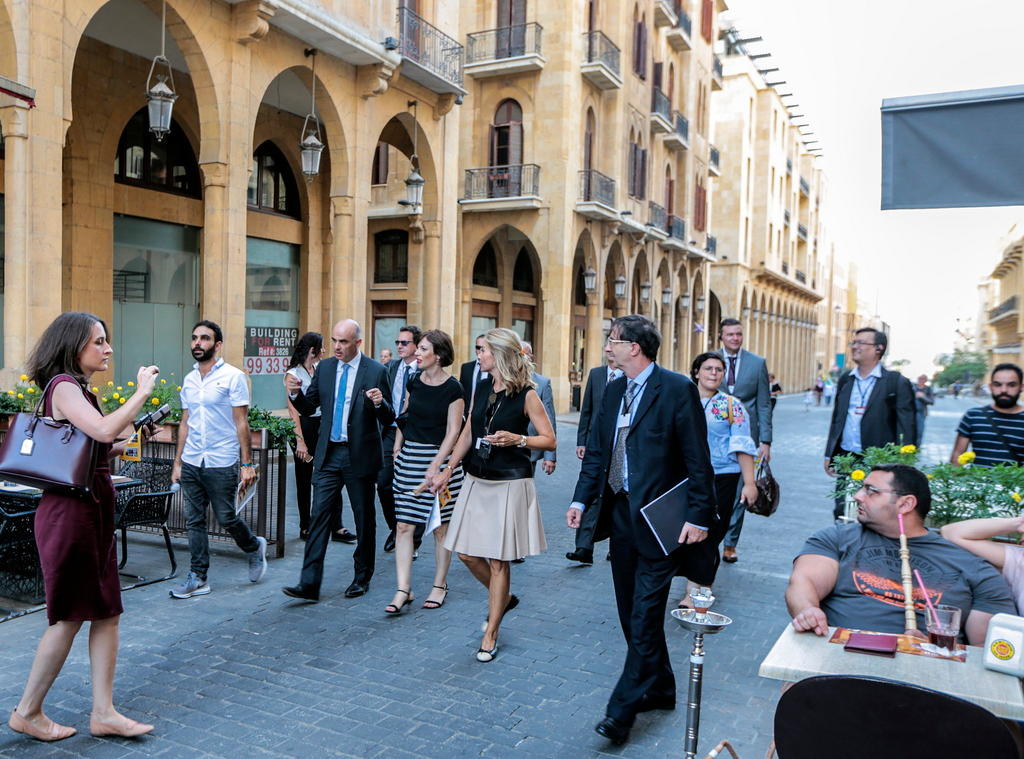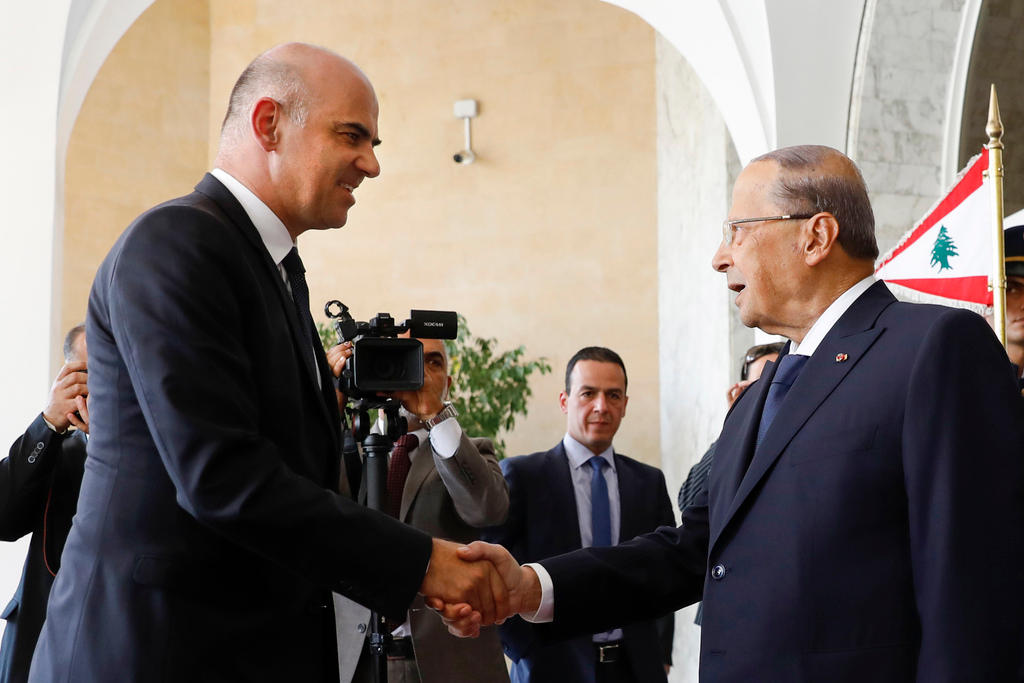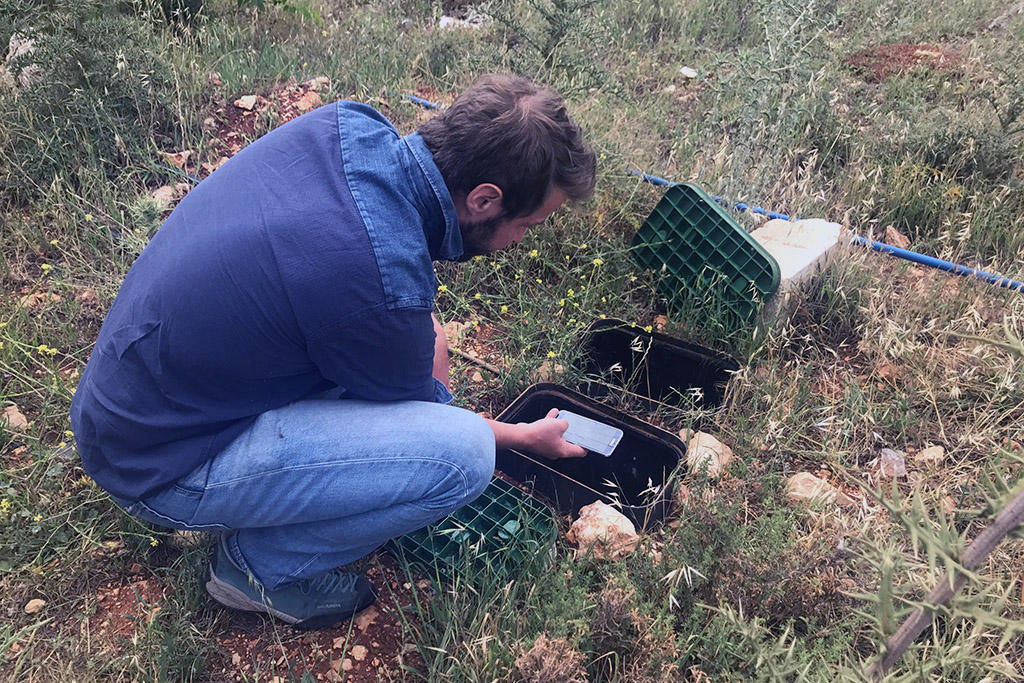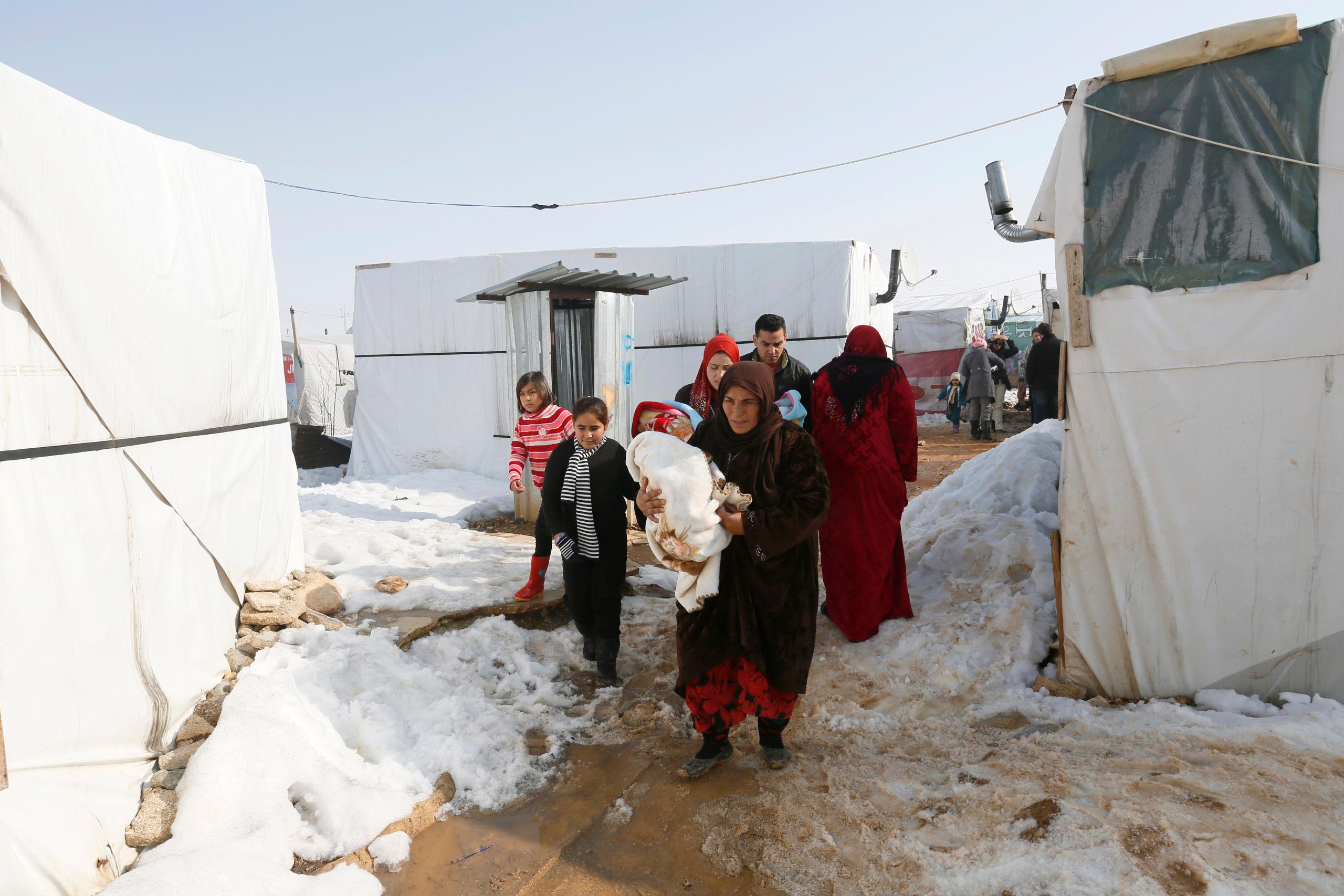Switzerland-Lebanon: what they have in common

Lebanon is often compared with Switzerland.
swissinfo.ch asked the current Swiss ambassador in Beirut to explain why that is and why the Alpine nation is so popular in Lebanon.
Switzerland and Lebanon have traditionally maintained good relations and have intensified ties of late, as seen by this week’s visit to Lebanon by Swiss President Alain Berset.
Monika Schmutz Kirgöz, Swiss Ambassador to Lebanon, explains what connects the two countries, and what it’s like to be a woman in a male-dominated country.
swissinfo.ch: Can you describe the state of relations between Switzerland and Lebanon?
Monika Schmutz Kirgöz: We have very close relations and Switzerland is extremely active in Lebanon. Especially in the cultural field – sometimes Lebanese and foreign colleagues tell me that Switzerland is culturally even hyperactive. But we also have projects in the area of school improvements, the advancement of women or, for example, water supply in the Bekaa.

More
Swiss president calls for patience on Syrian refugees in Lebanon
Switzerland, also a multicultural state, has a very good reputation here and many Lebanese have already visited or have Lebanese friends in Switzerland. The older generation in particular likes to emphasise that Lebanon was also called the “Switzerland of the Middle East” before the war.
swissinfo.ch: What does your work here look like?
M.S-K: My work is shaped by the multifaceted nature of the country. There are 18 recognised religions that are also represented in politics.
It is the only parliament in the world in which Sunnis, Shiites and various Christian faith representatives sit and discuss together. The country is very mixed and the Lebanese are proud of this because they know that this is unique in this region.
A large part of my work therefore consists in maintaining contacts with the various actors and stakeholders and in gathering information.
What is special is the easy access I have to people: I know all the ministers personally and we settle really urgent matters via Whatsapp. In what other country is that possible?
The start-up scene is very active in Lebanon.
swissinfo.ch: What do you attribute this to?
M.S-K: Like Switzerland, Lebanon is small country with hardly any natural resources, but relies on brainpower. Lebanon’s secret is that it simply does not function properly. It is precisely because of this dysfunctionality that people have become true improvisation artists.
Due to the few industries and the absence of structures, there is a lot of freedom for creativity and entrepreneurship, as well as for art, culture and theatre.
Since all groups want to be represented as part of the Lebanese mosaic, they prefer to get involved themselves rather than wait for the state to integrate them into the system.
It is estimated that about 4.5 million Lebanese live in Lebanon, but there are a further 10 to 15 million Lebanese living abroad. Many come back bringing their valuable experiences abroad with them.
swissinfo.ch: What’s it like to be in your position as a woman?
M.S-K: I feel taken seriously at all times, even by Hizbollah. In Lebanon, women are highly respected, most of them modern and free. Women are underrepresented in parliament, but not at state level: Proportionally, Lebanon has even more female ambassadors than Switzerland!
swissinfo.ch: What is the current security situation?
M.S-K: Lebanon is very safe. I’m not afraid, even when I’m walking alone at night. Certain areas near the borders should be avoided, but otherwise you can travel all over the country.

In compliance with the JTI standards
More: SWI swissinfo.ch certified by the Journalism Trust Initiative










You can find an overview of ongoing debates with our journalists here . Please join us!
If you want to start a conversation about a topic raised in this article or want to report factual errors, email us at english@swissinfo.ch.